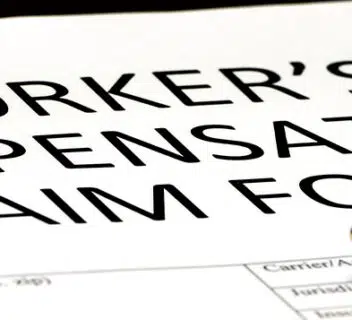What happens if an employer does not report an accident? When an employer does not report a workplace accident, they risk financial penalties and legal actions. For employees, it means difficulties in getting medical treatment and benefits. This article explores your rights, the consequences of what happens if an employer does not report an accident, and the steps to take to ensure your accident is properly documented.
Key Takeaways
- Employers are legally obligated to report workplace injuries promptly to facilitate workers’ compensation benefits for injured employees.
- Failure to report an injury can lead to significant consequences, including penalties for employers and potential denial of benefits for employees.
- Injured workers can take immediate actions, such as notifying supervisors and contacting the Workers’ Compensation Board, to protect their rights if their employer neglects to report an accident.
Employer’s Duty to Report Workplace Injuries
Employers have a legal obligation to report workplace injuries to ensure compliance with workers’ compensation laws. This duty is not just a formality; it is a crucial step in protecting the rights of injured workers and ensuring they receive the workers’ compensation benefits they are entitled to. Prompt reporting helps avoid the denial of necessary medical treatment and financial support, which can be life-changing for the injured employee.
Failure to report injuries in a timely manner can have severe consequences, including the potential loss of benefits for the injured worker and severe penalties for the employer. Understanding these duties and the consequences of non-compliance is essential for both employers and employees to navigate the workers’ compensation system effectively.
Legal Requirements for Reporting
Workers’ compensation laws are designed to ensure employees receive timely benefits after a workplace injury. Federal and state regulations mandate that employers report workplace injuries promptly. For instance, the Occupational Safety and Health Administration (OSHA) requires the timely reporting of severe injuries to comply with safety regulations, including workers’ comp requirements.
Employers must maintain accurate records of all workplace injuries to ensure compliance with both federal and state safety regulations. Key points include:
- Reporting timelines vary significantly by state.
- In California, injuries must be reported within 30 days.
- In Iowa, the deadline extends to 90 days.
- Failing to report an injury can affect the validity of workers’ compensation claims.
- It can also impact the injured worker’s ability to receive benefits.
Employers in states like Georgia are required to provide workers’ compensation coverage and keep detailed records of all work accidents. Workers should also be aware of their rights to seek medical treatment and report any work-related injuries promptly to ensure their eligibility for benefits. Knowing these legal requirements protects your rights and ensures compliance with the law.
Consequences for Employers
Employers who fail to report workplace injuries face a variety of serious consequences, including:
- Financial penalties
- Increased scrutiny from regulatory bodies
- Potential civil and administrative fines. Repeated failures to report injuries as mandated can attract even more severe penalties and legal actions from injured employees and regulatory authorities.
Employees can also report unreported injuries to OSHA, which has the authority to impose fines on non-compliant employers. These consequences highlight the importance of employers adhering strictly to reporting requirements to avoid these severe repercussions and to protect the rights and well-being of their employees.
Immediate Steps if Your Employer Does Not Report an Accident
If your employer does not report your workplace injury, it is crucial to take immediate steps to protect your rights and ensure you receive the necessary medical treatment and workers’ compensation benefits. One of the first actions you should take is to escalate the injury report to a supervisor or the human resources department, though be careful not to disclose too much without first consulting an attorney (HR works for your employer, not for you).
Failing to report an injury can lead to the denial of necessary medical treatment, which can exacerbate your condition and delay your recovery. Taking proactive steps helps ensure your injury is documented and you receive immediate medical attention, necessary compensation, and medical care.
Giving Notice of Injury
Immediate notification of your injury is crucial for preserving your right to workers’ compensation benefits. Notifying your employer right away ensures your eligibility for these benefits and helps document the injury for later claims. Documenting the notification of your injury is essential, as it establishes a record and can significantly impact your ability to receive benefits.
Proper documentation of the injury notification aids in acquiring necessary medical treatment by establishing a clear record of the incident. Whether the injury seems minor or not, always provide written notice to your employer to protect your rights and ensure that the injury is formally acknowledged.
Contacting the Workers’ Compensation Board
If your employer fails to report the injury, you can:
- Directly contact the State Division of Workers’ Compensation for intervention.
- Be aware of the contact signs posted at your workplace.
- If contact signs are not available, search online for the relevant contact information.
- Consult an experienced workers’ compensation attorney for assistance.
Workers also have the option to file their injury reports directly with the Workers’ Compensation Board if their employer does not cooperate. Taking these steps ensures that your injury is documented and that you can claim your workers’ compensation claim without unnecessary delays.
Filing a Workers’ Compensation Claim Form
To initiate a workers’ compensation claim:
- Obtain the necessary forms from the state workers’ compensation board.
- Fill out the workers’ compensation claim form.
- Send the completed form to your employer or directly to the state agency to collect workers’ comp benefits for your workers’ comp claim.
Delays in filing your claim can affect your recovery of benefits and medical care due to missed filing deadlines.
In the event that your employer fails to file the injury report, you still have options. You can take the initiative to report the accident directly to the employer’s insurance carrier yourself. Filing your claim form promptly is essential for securing your entitled workers’ compensation benefits.
Impact on Workers’ Compensation Benefits
Workers’ compensation benefits are a right for employees who are injured on the job. However, if an employer fails to report an injury, the employee may not be eligible to collect these workers’ comp benefits. This can lead to significant delays or even denials of workers’ compensation claims, impacting the injured worker’s ability to receive necessary medical care and financial support.
Injured employees need to be well-informed about their rights and the process for filing workers’ compensation claims. Recognizing the impact of an employer’s failure to report on your benefits helps navigate the workers’ compensation system effectively.
Delayed or Denied Benefits
Failing to report an injury can lead to significant delays in receiving workers’ compensation benefits. An unreported injury increases the likelihood of a workers’ compensation claim being challenged or outright denied. Despite the fault, injured workers are entitled to compensation and protection under workers’ compensation laws.
Maintaining comprehensive records of your injury and medical treatment is essential for substantiating your workers’ compensation claim. Documenting the timeline of medical treatment helps establish the severity and duration of the injury, which is crucial for receiving the appropriate compensation.
Tolling of Statute of Limitations
Employer negligence in reporting injuries can extend the period in which a claim can be filed, a concept known as tolling. If an employer fails to report an injury after knowing about it, the statute of limitations can be tolled, allowing the injured worker to pursue a claim even after the typical two-year period.
This extension is crucial for protecting the rights of injured workers and ensuring they have the opportunity to seek compensation despite their employer’s failure to report the injury. Knowing how tolling works is vital for navigating the legal landscape of workers’ compensation.
Legal Recourse for Injured Workers
Injured workers have several legal options available to them if their employer fails to report a workplace injury. Workers have the legal right to report injuries and receive appropriate compensation without fear of employer retaliation. The potential for financial penalties increases if an employer’s misconduct is deemed intentional or reckless.
Gathering strong evidence is crucial for workers considering a lawsuit against their employer for failing to report injuries. Employees should also be aware of the statute of limitations for filing lawsuits, which varies by state law. Knowing your legal options is crucial for protecting your rights and securing deserved compensation.
Filing a Complaint
Filing a complaint against your employer for failing to report your injury can lead to serious penalties for the employer. Scheduling a free consultation with a lawyer helps you understand your options and the best course of action. You may also need to file an appeal if your initial claim is denied.
Taking these steps ensures that your rights are protected and that your employer is held accountable for their failure to report the injury, making the employer accountable. Proper legal guidance can make a significant difference in the outcome of your workers’ compensation claim.
Pursuing Litigation
Several factors need to be considered before suing your employer for not reporting your injury. Workers may gain potential advantages in litigation due to the employer’s dishonesty regarding the reporting of the accident. The court may view the employer’s neglect or dishonesty as indicative of reckless endangerment, which can strengthen the worker’s case. An employer’s failure to report the injury can further complicate the situation.
Bonus financial penalties, known as punitive damages, may be imposed for intentional or reckless misconduct and can be significantly higher than compensatory damages. If employers do not file a claim with their insurance carrier, they lose immunity from civil lawsuits and can be sued for personal injury.
Pursuing litigation can be a powerful tool for securing the compensation you deserve.
The Role of an Experienced Workers’ Compensation Attorney
An experienced workers’ compensation attorney can provide invaluable assistance in navigating the complexities of the workers’ compensation system. If your employer refuses to report your injury, seeking help from a workers’ compensation lawyer immediately is crucial. These attorneys can explain the laws, your rights, and your employer’s responsibilities, ensuring you receive the benefits you are entitled to.
Injured workers facing unreported injuries should contact a workplace injury attorney to seek assistance for legal help to protect their rights and secure the necessary compensation for a work-related injury, lost wages, and job-related injury. The guidance of an experienced attorney can make a significant difference in the outcome of your case.
No Upfront Costs
One of the significant benefits of hiring a workers’ compensation attorney is that many work on a contingency fee basis. This means that you do not have to worry about upfront costs, as the attorney’s fee is based on a percentage of the compensation secured, typically ranging from 25-40%. This arrangement alleviates the financial burden on injured workers and ensures that the attorney is motivated to maximize the compensation for their client.
In most cases, you will not have to pay your attorney unless you win your case. This no-win, no-fee arrangement means that pursuing your workers’ compensation claim does not add financial stress on top of your injury. Having legal support without upfront costs provides peace of mind and lets you focus on recovery.
Free Consultation
Many experienced workers’ compensation attorneys offer free case evaluations to assess the merits of your case and provide guidance on the next steps. During this consultation, you can discuss the details of your injury, the circumstances of your employer’s failure to report it, and explore your legal options without any cost.
The information gained from a free consultation is crucial for determining the best course of action. Contacting an experienced workers’ compensation attorney for a free consultation can help you understand your rights and ensure you take the appropriate steps to secure the compensation you deserve.
Contact 1-800-THE-LAW2 today for a free consultation with a workers’ compensation attorney in our network.
Protecting Your Rights as an Injured Worker
As an injured worker, you have the right to compensation and medical care, and you should not have to forego these rights due to your employer’s failure to report your injury. Knowing your rights and taking steps to protect them is essential. This includes contacting an experienced workers’ compensation attorney and ensuring you follow the necessary procedures to secure your benefits.
Employers must ensure that their reporting procedures for workplace injuries do not discourage employees from coming forward. When an employer fails to report an injury, they violate legal obligations that can jeopardize your rights and well-being. Legal action may be necessary if their failure results in further harm or loss of benefits.
Documenting the Injury
Providing written notice of your injury is prudent as it documents the report and proves that it was made on time. Keeping detailed records of your injury, including medical treatment received, is crucial for securing your workers’ compensation benefits and protecting your rights. Detailed documentation, including witness statements, serves as vital evidence that can substantiate your claim and ensure you receive appropriate compensation.
Regardless of severity, always document the incident thoroughly. This includes keeping a record of all medical visits, treatments, and any communications with your employer regarding the injury. This documentation can be crucial evidence in your workers’ compensation claim and any potential legal actions you may need to take.
Understanding Your Rights
Injured workers are entitled to access their medical records and receive documentation related to their injury and treatment. This right is protected by workers’ compensation laws, ensuring that you have the necessary information to support your claim. Employees are also protected from discrimination and retaliation when they file a workers’ compensation claim.
Knowing these rights is crucial for navigating the workers’ compensation system and ensuring you receive your entitled benefits. If you face any challenges or feel your rights are being violated, seeking legal representation is a vital step to protect yourself and secure the compensation you deserve.
Summary
What happens if an employer does not report an accident? Navigating the complexities of a workplace injury can be overwhelming, but understanding your rights and the steps to take if your employer does not report your injury is crucial. Employers have a legal obligation to report workplace injuries promptly, and failure to do so can lead to significant consequences for both the employer and the injured worker. Immediate steps such as notifying your employer, contacting the Workers’ Compensation Board, and filing a workers’ compensation claim form are essential to protect your rights and secure the benefits you deserve.
An experienced workers’ compensation attorney can provide invaluable support throughout this process, offering guidance, legal representation, and ensuring you do not incur upfront costs. By documenting your injury thoroughly and understanding your rights, you can navigate the workers’ compensation system effectively and ensure you receive the compensation and medical care you need. Take charge of your situation and protect your rights as an injured worker.
Frequently Asked Questions
If your employer fails to report your workplace injury, it is imperative that you alert a supervisor or human resources, contact the Workers’ Compensation Board, and file a workers’ compensation claim form to ensure you receive the necessary benefits. Taking these steps protects your rights and ensures proper documentation of your injury.
Yes, you can still receive workers’ compensation benefits by filing a claim with the Workers’ Compensation Board, even if your employer fails to report your injury. However, be aware that delays in reporting may affect the speed of your benefits.
Employers who do not report workplace injuries can face significant financial penalties, increased scrutiny from regulatory bodies, and potential civil and administrative fines. It’s crucial for employers to adhere to reporting requirements to avoid these serious consequences.
An experienced workers’ compensation attorney can assist you in navigating the complexities of the claims process, safeguarding your rights, and obtaining the benefits you are entitled to, often without requiring upfront fees.
Tolling of the statute of limitations allows an extension for filing workers’ compensation claims if the employer does not report the injury, safeguarding your right to pursue compensation beyond the usual deadline. This provision ensures that injured workers are not unjustly barred from seeking the benefits they deserve.











